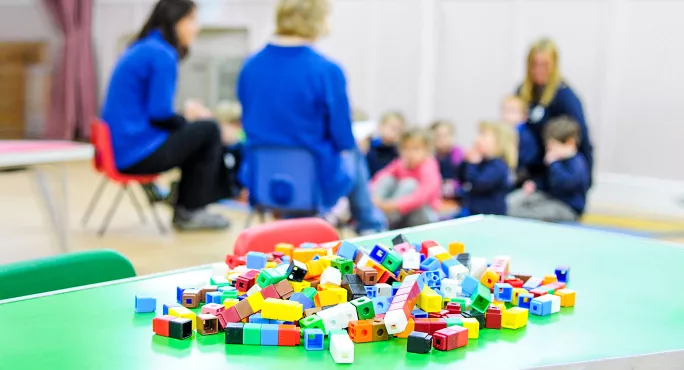
SEND: ‘Concern’ as primary late starters double

School leaders say research that shows a near-doubling in the proportion of pupils with special educational needs and disabilities (SEND) who enter Year 1, having missed out on at least some of Reception, suggests there is an “increasing mistrust” among parents of schools’ ability to meet children’s needs.
The figures revealed in a London School of Economics report found that in 2021, almost double the number of pupils recorded with SEND (819, or 2.2 per cent) missed some or all of Reception and rejoining their age cohort in Year 1, compared with 468 (1.2 per cent) in 2016.
Leaders say this is part of a “concerning” trend.
Rob Carpenter, chief executive of the Inspire Partnership multi-academy trust, said his organisation had seen “an increasing mistrust, from parents, in schools’ capacity to meet SEND needs”.
- Exclusive: Plea for Reception place funding for nurseries
- Pearson: 7 in 10 teachers say pupils with SEND not effectively supported
- Background: Pupils with SEND in schools top 1.5 million
He said the “knock-on effect” of this is that it is “much harder to deliver high-quality Year 1 provision because of the variety of SEND needs presenting in Year 1 classrooms”.
Beatrice Merrick, chief executive of Early Education, told Tes that the research fits with what the charity is hearing “about a lack of sufficient Reception places for children with SEND, both in mainstream and in special schools, and how that is leaving some children with either no place at all, a reduced timetable or remaining in early years provision”.
Ms Merrick said this could mean that pupils with SEND entering Year 1 “will have a harder transition than their peers, when we know that a supportive transition is important for all children, but likely to be particularly critical for those with SEND”.
Mr Carpenter added that the numbers of pupils his trust sees entering Reception with “moderate and complex SEND needs is frightening”.
Important learning stage
Margaret Mulholland, SEND and inclusion specialist at the Association of School and College Leaders, said the research “shines a light on the increasing use of this practice...which is concerning but perhaps unsurprising with the additional anxieties post-pandemic and growing awareness of SEND”.
She said that the Reception year is “an important learning stage and it’s worrying that a growing number of pupils with SEND appear to be missing some or all of this”.
Earlier this year, Tes revealed that sector leaders were warning of early years providers being “penalised” for stepping in to take on Reception-age pupils with SEND amid a drastic shortage of special or appropriate primary school places.
The fresh analysis, published by the British Educational Research Association and written by Dr Tammy Campbell, from LSE’s Centre for Analysis of Social Exclusion, used the School and Early Years Census within the National Pupil Database, to investigate national patterns of entry to primary school in England over a decade up to 2021.
However, Dr Campbell said that the analysis included only pupils who had attended pre-school as there is no data on those who did not.
She also said that in 2021, among all the pupils who miss at least some of Reception and entered in Year 1, just 42 per cent were known to be attending pre-school or nursery in the interim.
For pupils with recorded SEND, the report found that 34 per cent received no funded provision in the period in between leaving pre-school or nursery and entering Year 1.
More advantaged families utilising right to defer year
Analysis also found that 9.5 per cent of summer-born pupils with recorded SEND who are not eligible for free school meals are educated in Reception at Year 1 age, compared with 6.7 per cent of disadvantaged peers.
And the report claims that the findings “call into question” the Department for Education’s assertion that the “right to request” later school entry system is “now working well”.
“Policymakers should consider whether a system relying on non-statutory guidance and ‘right to request’ later school entry adds to inequities, if access to the option is not equitably accessible.”
James Bowen, assistant general secretary of school leaders’ union the NAHT, said: “It is understandable that some parents, particularly of summer-born children, consider deferring entry to school.
“However, parents should certainly think carefully about delayed starts where children miss some or all of the Reception year.
“The Reception year is a crucial one, and also a really important part of the transition from pre-school to school.”
You need a Tes subscription to read this article
Subscribe now to read this article and get other subscriber-only content:
- Unlimited access to all Tes magazine content
- Exclusive subscriber-only stories
- Award-winning email newsletters
- Unlimited access to all Tes magazine content
- Exclusive subscriber-only stories
- Award-winning email newsletters
You need a subscription to read this article
Subscribe now to read this article and get other subscriber-only content, including:
- Unlimited access to all Tes magazine content
- Exclusive subscriber-only stories
- Award-winning email newsletters
- Unlimited access to all Tes magazine content
- Exclusive subscriber-only stories
- Award-winning email newsletters



